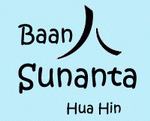Karens. The Karens are tribe people. The population of Karens is around 14 million. The majority of the Karens live inside Burma. There is a number of Karen refugees living in a border area of Thailand. Traditionally, most Karens are farmers who farm the nutrient rich soils of southern Burma and eastern Thailand. The religion of the Karen majority is Animism and Buddhism although about 30% of them are Christians. Karens, unlike other large ethnic groups, are made-up of smaller subgroups which very often speak in their own dialects. There two main groups of Karens: the Sgaws(S'waw) and the Pwos. Karens are known for their colorful traditional clothes. They love to sing and dance. Karens are well known for their hospitality and friendliness which they readily extend to everyone. Forced displacement. Displacement by mass forced relocation program started from the construction of Yadada gas pipeline, and followed by a massive relocation exercise in late 1996, which was thought to be due to the consolidation of the area by the new Coastal Regional Command, took place around the Mergui/Palaw area. The combination of the gas pipeline, the various road projects, lignite and tin mines, the oil palm plantations and the fishing and tourism opportunities in the Mergui archipelago make this region very attractive to the SPDC to secure and develop for their own. In 1997 Burmese troops made and offensive against the KNU's Mergui-Tavoy District HQ in the east of the division on the Thai-Burmese border and overran it and occupied some parts of the district. According to Committee for Internally Displaced Karen Peope's Mergui-Tavoy district, 122 Karen villages were destroyed, 86 were forcibly relocated while 31 villages remain unaffected by forced relocation program or Burmese troop's offensive. After 1997, 74 percent of Karen populations are in forced relocation sites, 9 percent are hiding in the jungle as internally displaced people while 17 percent become refugees and as externally displaced people or illegal immigrants in Thai villages on the border. Human rights abuses are systematically carried out by the Burma army against the Karen population and other ethnic groups or civilian for decades and so far. Notably extra judicial killing, torture, forced labour, forced portering, forced relocation, extortion, rape, destruction of properties, land confiscation, culture/literature oppressions and other etc. The school in the village does not have any teacher, as they do not want to be isolated in the mountains. They prefer teaching jobs in the cities where life is more comfortable. The older children 10 - 16 are attending a Karen boarding school down the mountains. The small children do not have any education. They just play with each other the whole day.
The boarding school compound has about 10 bamboo houses where the children sleep. The school compound accomodates about 30 children. There is an area with two classroom and a small library. I went to see the school kitchen. Inside there was a small place to make fire, nearby was one clay pot with water and another metal pot for cooking meals for the children. In the store next to the kitchen were about 5 bags with rice and nothing else. I could see that the situation at the school compound was a bit desparate.
I have written this article about the Karens to alert you to their plight. Khun Oy and Khun Oh have agreed that they will take in any goods donations and take them to the Karens when they will take foreing tourist for tours to the villages. See pictures: List of donors so far:
|
| Hua Hin Accommodation | Rent Hua Hin | Hua Hin Deals | Hua Hin Property | Hua Hin Expat | Hua Hin |
| Hua Hin Apartments | Hua Hin Condos | Hua Hin Villas | Hua Hin Houses | Hua Hin Vacations | Hua Hin Beach |
| Bangkok Hotels | Thailand Hotels | Thailand Travel | Thailand Pictures |







